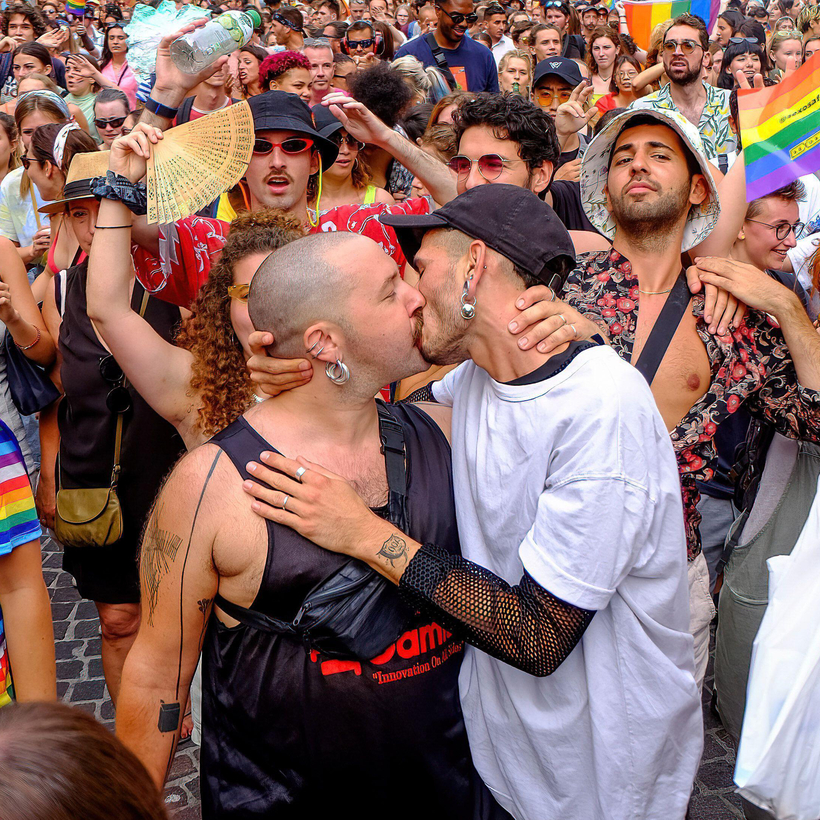France’s second city suffers from a famously sinister reputation for organized crime, drug violence, and economic distress. Riots following the recent police shooting in Paris of 17-year-old Nahel Merzouk haven’t helped the city’s image. But despite the grim tropes, Marseille remains a destination and a melting pot—a haven for immigrants and short-term visitors—and today the port city is attracting another group looking for its place in the mix: young L.G.B.T. people.
If you stroll around the maze of hills downtown, the signs are subtle but unmistakable: twenty-somethings with dress and hairstyles challenging conventional gender norms walk the busy sidewalks; posters for various L.G.B.T.-friendly events line the aging buildings; same-sex couples linger at bars and restaurants catering to their presence.

